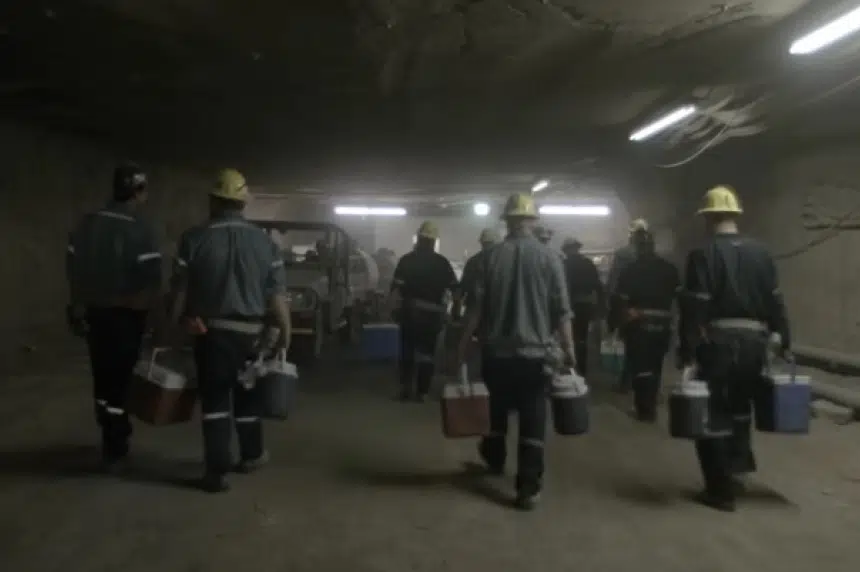The strike by workers at B.C. ports is affecting the potash and farming industry in Saskatchewan.
About 7,400 port workers at more than 30 ports in B.C. have been asking for increased pay and protection from automation and contracting out since Canada Day.
Jeremy Cockrill, Saskatchewan’s minister of highways and the minister responsible for the Saskatchewan Water Security Agency, spoke with Gormley about the strike.
“This is starting to have a pretty significant impact on our province,” Cockrill said.
He called on the federal government to do something about the strike.
“We’re now on Day 10. We’re now into billions and billions of dollars of goods that haven’t moved from Canada to markets all across the world,” Cockrill said Monday.
He wants the government to explore all possible options to bring the strike to an end, including back-to-work legislation.
The government used that legislation at the Port of Montreal strike in 2021. That work stoppage only lasted a week.
“If the federal government wants to look at that tool (back-to-work legislation), we’d be supportive of getting it to a resolution,” Cockrill said.
According to Cockrill, most of the products that leave Saskatchewan move through Vancouver or Prince Rupert ports.
While there are other options like Canpotex terminals in Saint John, N.B. or Portland, Ore., those terminals are significantly smaller than the Port of Vancouver.
“It’s the best option for Saskatchewan shippers. It’s the most cost-effective option,” said Cockrill.
Cockrill and Minister of Trade and Export Development Jeremy Harrison wrote a letter to the federal government on June 20 warning about the problems the strike would cause for Saskatchewan and other prairie provinces. Cockrill said they have yet to receive a response.
“We were trying to encourage the federal government to plan ahead and be ready for this,” said Cockrill.
In a statement, The Mosaic Company said it’s looking at options.
“Rail carriers have issued embargos for all potash moving to west coast ports and through Canpotex we’ve avoided production impacts thus far by utilizing alternative routes – albeit limited and more costly – and leveraging storage in en-route trains,” the statement said.
In regard to the strike’s effect on the agriculture industry, the company said: “Each day shipping through west coast ports is suspended heightens our containment risk and increases the likelihood of competing with peak grain shipment season in the fall. Recovering and unravelling this supply route gets more complicated and lengthy by the hour – time that farmers around the world don’t have.”
A Canpotex spokesperson said the company wouldn’t be doing interviews and to direct any questions to Nutrien Ltd., which said in a statement Tuesday it was reducing production at its Cory potash mine due to effects of the strike.
In an email later Tuesday, Nutrien said it was “in a quiet period ahead of earnings” and declined to comment further — other than to say any logistical inquiries should be directed to Canpotex.
The Port of Vancouver is about the size of the next five largest Canadian ports combined. It connects Canada to 170 different world economies.
Depending how long the strike lasts, it could take weeks or even months to catch up on the growing backlog at the port.
$8 billion in losses predicted
Prahba Ramaswamy, the CEO of the Saskatchewan Chamber of Commerce, told Gormley the federal government can’t wait to get port employees back to work.
“There’s no sign or signal that this can be resolved in the near future, and this is very serious and extremely concerning for our province,” said Ramaswamy, who noted the economic toll on the Canadian economy is around $8 billion.
Forty-four per cent of Saskatchewan trade goes through the Port of Vancouver. That amounts to $17 billion worth of Saskatchewan commodities. For Western Canada, $65 billion worth of commodities goes through Vancouver.
Grain exports are not affected by the strike, but potash exports have not moved in 11 days.
“It is time for the federal government to step in and act with urgency and clarity,” said Ramaswamy.
She added the strike also affects Saskatchewan and Canada’s reputation as a reliable global trading partner.
— With files from 980 CJME’s Gillian Massie







